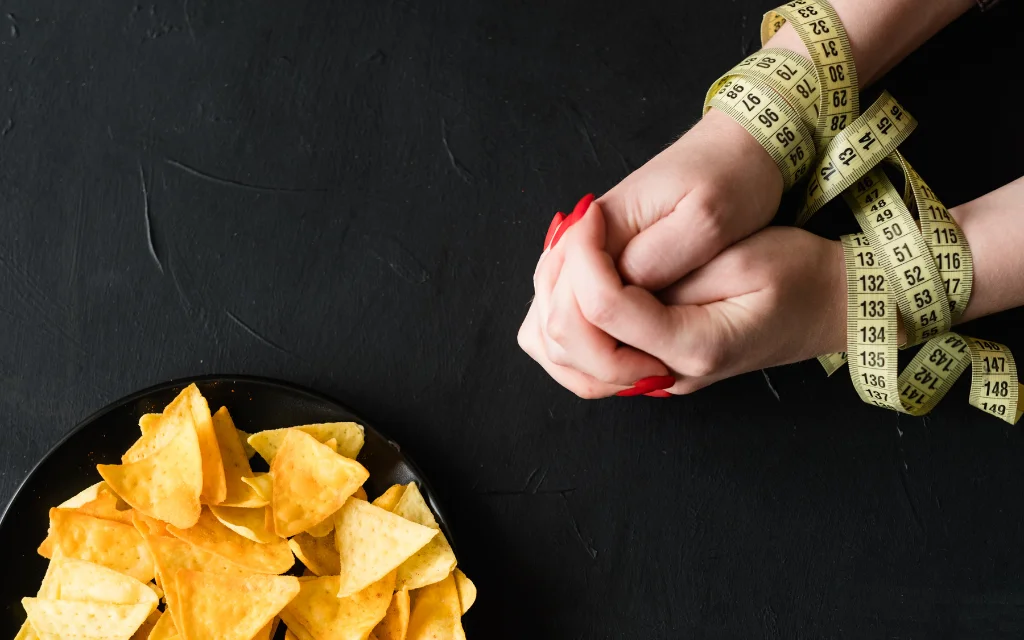Restrictive diets mess with our minds, even when weight isn’t an issue. In my teens, I tried a low-carb Atkins-era diet, though I weighed under 120 pounds. I simply wanted to lose a few pounds as my jeans felt tight. Back then, my relationship with food wasn’t bad—I just ate like most teenagers, not the healthiest choices.
After around two hours, I recall being fixated on the foods I was unable to consume and feeling a strong desire to lose weight as quickly as possible so that I could resume eating them.
By noon, I had “failed.”
I caved and ate…. *gasp, shock, horror*… carbohydrates.
And something unusual happened. I felt horrible right away.
Not only did I believe I had made a poor decision.
“You idiot, you can not do anything correctly,” I thought. You have already messed up after just one meal. For the remainder of the day, you might as well eat anything you want and start over tomorrow.
I believe that attempt caused me to gain roughly five pounds.
Since then, I have been gradually gaining weight each year and feeling worse and worse every time I eat something “wrong.”
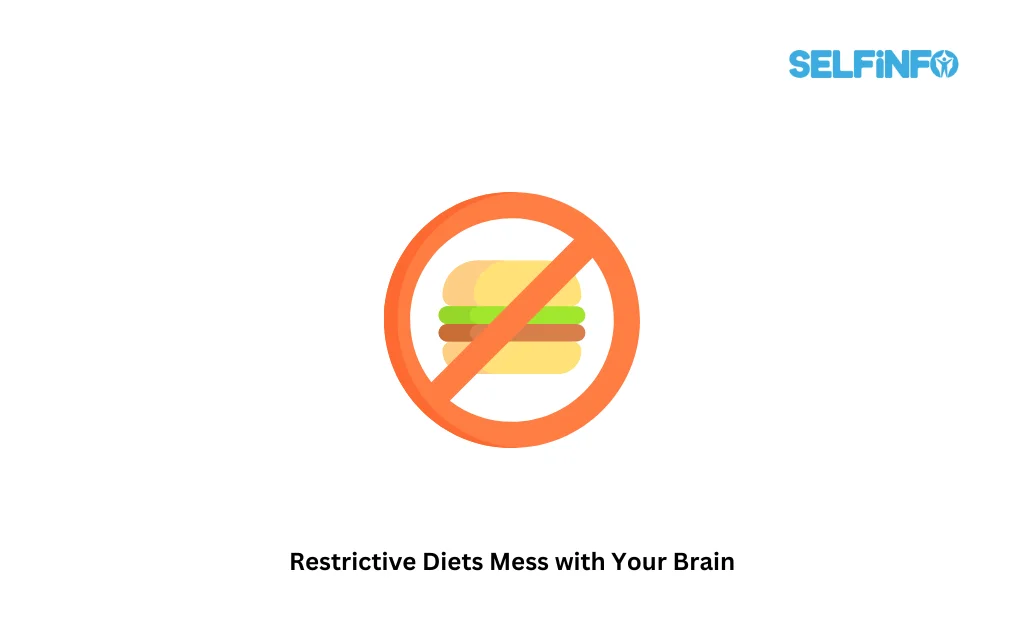
I had been struggling with food and my weight for decades after the Atkins low-carb miracle cure failed me miserably.
You see, I did not think my decision was poor and just made a better one the next time; rather, I felt that
What occurs when we behave badly?
We are disciplined.
It took me many years to discover that those demeaning thoughts and the overindulgence in food during the rest of the day were partly a form of self-punishment for my terrible behavior.
It got worse and I felt more out of control the harder I attempted to regulate what was entering.
As they say, I tried to follow a “clean eating meal plan” and ended myself at my lowest point in my thirties.
I experienced my first-ever binge four days into my first attempt to “eat clean” and rigorously follow what someone else advised me to consume.
I had some minor food problems before then. I felt bad when I ate carbohydrates, ate kind of crummy, and had been gradually gaining weight (thanks, Atkins).
However, I was in the midst of a severe eating disorder a few days after I started “clean eating.”
I may have looked and felt fantastic thanks to the clean eating miracle fad, but emotionally, it failed me miserably and set off my years-long fight to overcome binge eating and bulimia.
However, I believed I was the only one. Why could not I just eat like a regular person? I was such a screwup.
I noticed how much better I looked and felt when I was able to “be good” and “eat clean,” but after a few days or weeks of “being good,” I invariably gave in and ended up bingeing once more, regardless of how wonderful I felt after eating that way.
And I always assumed it was me. I convinced myself that I was weak, broken, and pitiful.
“If it is not on your plan, it does not go in your mouth” and “You can not expect to acquire the body you want by eating the things that gave you the physique you have” were the messages I spread when I began training other people.
I provided customers what I knew would make them feel great and get the best outcomes because I wanted them to feel great.
However, I was unaware at the time that those rules and messages were the real cause of all my personal food-related problems, and I certainly had no idea that they would have such an impact on other people.
Everyone else seemed “normal” to me. I simply battled so hard to just “be good” and “stop screwing up” because I was damaged, weak, and stupid. Ordinary people would instantly change and lead happy lives after realizing how much better they felt after eating that way.
Ha. No.
As I worked with more clients, I saw that food is the thing that most people struggle with the most. I also noticed that most of my clients had the exact same beliefs and behaviors that I had.
Additionally, nearly all of them had a lengthy history of diet failures.
Hmmm. Perhaps I was not the only one.
Although not everyone suffers from bulimia, I became increasingly aware of how incredibly common disordered eating and eating disorders have become as I talked to others about their food difficulties and shared mine with them.
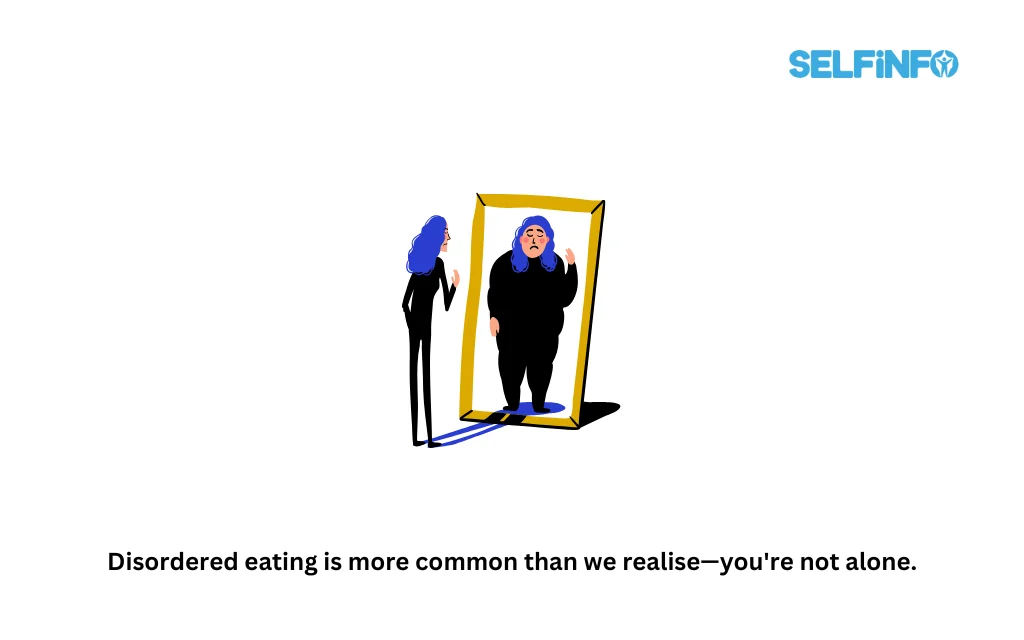
I never realized how many individuals suffer from binge eating, which is an eating problem. However, the majority of individuals are ashamed to acknowledge it, and many might not even be willing to acknowledge it to themselves.
I understand that since it is linked to gluttony and a lack of self-control, both of which are highly stigmatized. In reality, though, it has little to do with either, and unless you acknowledge that you are having difficulties, nothing can be changed.
Even more widespread is disordered eating in general.
It is not typical to feel guilty after eating. Disordered eating is what that is.
It is not typical to restrict entire dietary groups. Disordered eating is what that is.
It is not typical to severely restrict eating in general. Disordered eating is what that is.
It is not normal to be critical of oneself for eating anything “bad.” Disordered eating is what that is.
It is not typical to start and quit a new diet every few weeks or months. Disordered eating is what that is.
We are so messed up by diet culture that we do these things for the most of our lives without even understanding they are abnormal. Additionally, they are having a detrimental impact on our entire life.
I spent hundreds of hours researching dieting, habits, motivation, disordered eating, and whatever else I could find to help myself and my clients better follow their programs while I worked on my own recovery.
I used to believe there must be a way to force us to consume only what we should eat because it is so simple!
However, I discovered the exact opposite.
I discovered that the real issue was attempting to “keep to the plan.”
Not telling people what to eat in the first place was the answer, not coming up with some magic way to help them stick to their meal plans.
We eat what we eat, when we eat, and even in what amounts for a variety of reasons. Telling someone to stop all they know and simply eat this much of this at this time of day because it would make them happy and slim later on does not work.
That is not how our brains operate.
In reality, our brains function in the exact opposite way.
Our brains begin producing compulsions and obsessive thoughts that push us to “cave” as soon as we impose constraints on what we are permitted to eat and what is not.
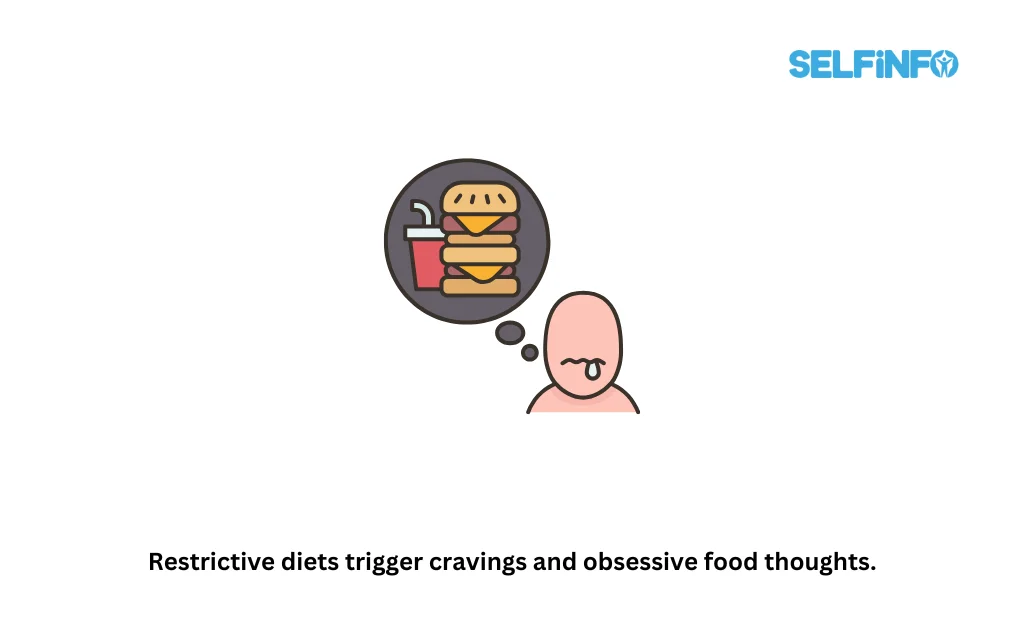
Have you ever found that your desire for something increases the moment you “can’t” have it?
We literally have that survival drive hardwired into our brains since the beginning of time.
Physiologist Ancel Keys, PhD, and psychologist Josef Brozek, PhD, started a nearly year-long experiment on the psychological and physiological consequences of fasting on thirty-six young men who were physically and intellectually sound in November 1944, following World War II.
It was anticipated that the guys would reduce their body weight by 25%. Following three months of a typical diet of 3,200 calories per day, they went through six months of semi-starvation at a daily intake of about 1,600 calories (albeit 1,600 is not even that low). Three months of rehabilitation (2,000–3,200 calories per day) followed the semi-starvation phase, and then there was an eight-week period of unrestricted rehabilitation, during which there were no dietary restrictions.
The physiological and psychological effects of calorie restriction were thoroughly observed by researchers.
The alterations were significant during the most constrained phase. The men’s physical appearance deteriorated, and their strength, endurance, body temperature, heart rate, and even sex drive all significantly decreased.
The psychological consequences were significantly more pronounced and are similar to those that practically everybody who has ever dieted may identify with.
They developed a food obsession. The men binge-ate thousands of calories in one sitting if they had the opportunity to obtain more food.
The men were a vibrant group before the limitation period, talking about current affairs, politics, and other topics. This rapidly changed during the period of restriction. They constantly discussed food, read, dreamed, and had fantasies about it.
They became apathetic, tired, withdrawn, and agitated. Obsessive thinking, particularly related to food, depression, and anxiety were also noted.
Some men found the study too challenging; they were disqualified for not following the diet or failing to reach their weight loss targets.
Our lack of willpower is not the reason we have trouble adhering to diets and food regulations. Our brains are physically wired that way.
Why? Because humans are not made to regulate our food intake from an evolutionary perspective. The overpowering drive to survive is ingrained in our DNA, so when we restrict our intake of food (either in terms of total calories or food types), our brains start to produce intense urges, compulsions, and a sense of urgency that pushes us to satisfy our requirements—and frequently much more than our needs (binges).
Because it is built into our brains, we cave. When we restrict food or food groups, the act of caving actually becomes ingrained in our brains as a habit that we repeat automatically.
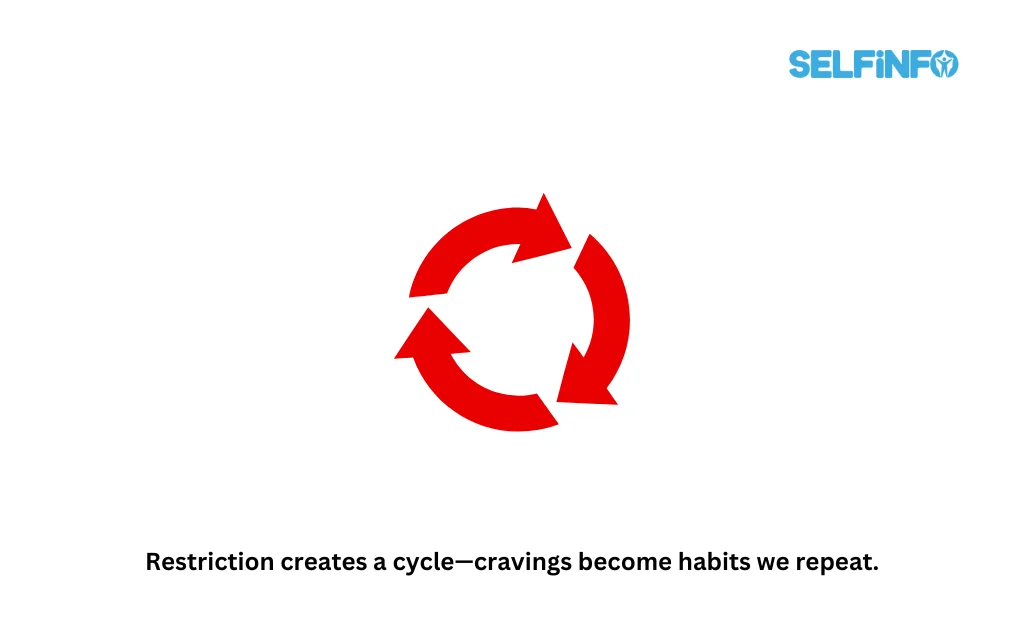
Additionally, it sets off the punish mode I mentioned before, which exacerbates the issue and gradually erodes our sense of value.
Therefore, millions of individuals spend tens of billions of dollars year on diets that cause most of us to become heavier, sad, nervous, compulsive food eaters, and undermine our sense of self-worth.
I realize that all of that seems quite depressing, but there is hope. I have found it, therefore I know.
It may seem like the wrong thing to do, but it saved my life.
I stopped attempting to restrict and let myself to eat anything and whenever I wanted. The more frightening it sounds, the more you must do it.
We may start to gradually shift away from the scarcity perspective and break the habits and obsessions that dieting has formed as soon as everything is allowed.
We offer ourselves the opportunity to become more conscious of our choices when we allow ourselves to eat anything we want without feeling guilty or judged.
Because we start to appreciate ourselves once more, we allow ourselves the chance to examine the reasons behind our current decisions and the freedom to choose otherwise.
We may start to notice how the things we consume make us feel and make decisions based on kindness and love rather than fear, guilt, and punishment if we get rid of the judgment and guilt, learn to appreciate ourselves again, and practice mindfulness.
It may seem too easy to implement, yet it saved my life.
We must establish a relationship with our bodies instead of telling others what they should or should not eat or attempting to listen to someone who is telling us what we should or should not eat.
Listening to them and recognizing the distinction between emotional and bodily hunger are things we must learn. to begin experiencing feelings rather than sating them, and to cease eating when we are not physically hungry.
The habits that lead to automatic eating must be broken. Rather than following a diet that promises to make us happy and thin, we need to be conscious, accept the wisdom of our bodies, and base our decisions on how they make us feel.
UPDATE: Restricting food groups for a diet is not the same as choosing not to eat meat for moral grounds or avoiding particular foods for health or allergy reasons. Continue if you are content and feeling fantastic about whatever you are doing right now! This is intended for people who feel out of control because they can never manage to “keep on track” and who struggle with binge eating and recurrent diet efforts.
